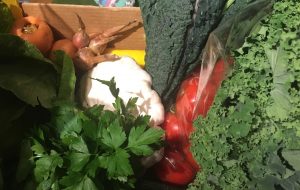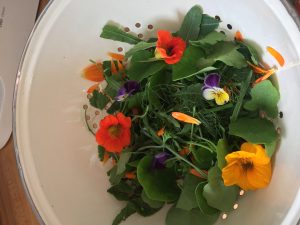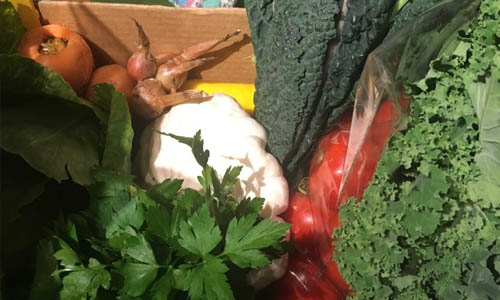Diet Judgements
Having just explained to someone that it’s easier if I just provide my own lunch, I find myself thinking about why diet judgements aren’t helpful on an ailing planet.
We live in a world saturated with ideas about what makes a healthy, morally correct or planet saving diet. Allegiance to particular diets has become extreme and in some cases, even smacks of fundamentalism. In fact, some people have become so wedded to “their way” of eating they are no longer capable of rational discussion about the subject.
What is healthy?
The debate about what constitutes the “right” diet rages on. Some say vegan, some vegetarian, for some paleo is the way. Others claim blood type, metabolic type, low grain, no grain, ketogenic, ancestral, plant based, juicing, organic and raw have the answer.
Oh, how privileged we are!
Not enough
Do you think the 850 million with not enough to eat care about what diet makes sense? I doubt it.
If you are starving you need food in your belly. If you are malnourished, as an additional many are, you need access to good, healthy nutritious food.
 Absurd idea
Absurd idea
The idea that there is one diet that fits all 7 billion people on earth, is absurd. We need to face the facts. On our planet millions of people already face starvation and malnourishment. Some of them live right here in our own communities. This is not a situation that is going away. If anything there will be much more to come, including us, if we don’t get the ecological, climate and injustice emergencies on this planet sorted out.
All eat differently
If we look around our beautiful planet, particularly at local indigenous diets, we find they are all different. The Inuit don’t eat coconuts, Massai don’t eat seal meat and Pacific Islanders don’t drink blood. Instead they eat what their particular environment provides. Their bodies have adapted to the place in which they live and their diets have evolved accordingly. Western Price’s work on this is particularly illuminating and recommended reading.
What we find is that as soon as they start to adopt a more western diet which includes processed products they get sick. A WHO (World Health Organisation) Bulletin report about the Pacific Islands makes sad reading and concludes:
“The average age at which people develop diabetes and cardiovascular disease is getting lower. In Fiji, only 16% of the population is aged more than 55 years due to premature deaths primarily caused by noncommunicable diseases.”
The WHO recognise that these noncommunicable diseases are caused by the imported diet.
Our inherent nature
That Sugar film shows us how the same thing has happened to the aboriginal people in Australia. Due to colonisation and invasive species they are no longer able to eat bush tucker. Instead they have to rely on the local “store” which is full of highly processed foods and sugary drinks. It’s a million miles away from what their bodies evolved to eat and as a consequence many of them are now dying unnecessarily young.
Are we really surprised that they are sick? Probably not, so surely, we cannot be surprised that so many of us, here in the west, are also sick.
Without ancestral guidance
Separated from our ancestral origins and indigenous foods we rarely eat a local diet. Shopping in huge supermarkets full of imported goods we often, haven’t a clue what local might even looks like anymore. Our inherent nature is to be in community, to hunt, gather, cook and eat together but modern food systems have separated us from this.
We find ourselves without ancestral guidance, no longer enrolled in an innate tradition stretching back through time. What we eat is now dominated by massive global companies whose raison d’être is to make profits. Claims that they provide healthy choices may be true, but most of what they pedal in truth, contributes to the epidemic of chronic illness sweeping across western countries.
 Latch onto ideas
Latch onto ideas
Is it little wonder then, that we latch onto ideas which promise us something we long for. We can be part of a gang, belong, gain health and save the planet. Wow, who doesn’t want that!
Here in lies a problem. These dietary tribes are becoming polarised. The same electronic systems that funnel us down umpteen other pathways do the same with our diet. Exposure to different ideas is narrowed as the algorithms bring us more of the same, filtering out all that does not fit.
This polarisation means other people’s choices start to look wrong. We judge them as faddy, ill informed, naive or crazy. In some cases we can get very self righteous about the correctness of our beliefs about diet.
Diet dictates
I’ve been there, lived it, said and done it. If you ask those who know me they, I am sure, would confirm my diet judgements and dictates. As I found ways to recover from chronic illness I evangelised about the my amazing discoveries. I felt like I’d found the answer and I wanted everyone to get it too.
The opposite was also true. Perhaps my diet made people feel uncomfortable with their own choices, I don’t know. Eyes rolled, tongues tutted and some people even made jokes and tried to shame me into changing.
Current paradigm
Such diet judgements aren’t helpful on an ailing planet. They only serve to continue the current paradigm, supporting a system that thrives on you against me, us against them. This “othering” of difference is divisive, dangerous and delusional.
We are all humans beings living on planet earth, needing to fill our bellies to survive. The diets that works for one person may not necessarily work for someone else. Continually banding about judgements about other people’s diets will not help us find solutions to the very real problems we face. It’s about time we changed all this.
Toxic system
How about we start by recognising the reality many of us live in. We no-longer eat from the land we belong to, we eat from the land of others. Instead of eating real food we eat food like substances manufactured by global corporations.
This toxic system limits or makes non-existent, our access to good locally grown nutritious food. We are locked into global food networks which extract maximum profit at any cost. That cost is deep in terms of human health and wellbeing. Along the way it creates misery for many and it is destroying our habitats and ecological systems.
Real food
We all arose out of this planet, she provided everything we needed for life to thrive. Collectively we’ve messed it up big time. Collectively we can solve it. Let’s help each other to find our dietary way home.
If we start to eat more real food, grown as locally as possible, prepared and cooked by ourselves and shared with others we are reconnecting. This is truly an act of radical self care (RSC).
Radical self care
Practicing RSC reconnects us with our land, our culture, our traditions and our community. By actively rebelling against the diet judgements and toxic food system we can play an important part in helping create positive change at this pivotal moment in human and planetary history.
“This magical, marvelous food on our plate, this sustenance we absorb, has a story to tell. It has a journey. It leaves a footprint. It leaves a legacy. To eat with reckless abandon, without conscience, without knowledge; folks, this ain’t normal.”
Joel Salatin, farmer and author.
![]()
If you feel confused about where and how to begin, check out some of the resources below or get in contact and I will do my best to support you.
Resoures
Check out the Weston Price Foundation.
Find a Farmers Market.
Join community growing scheme, or start one.
Learn to grow your own food.
Learn to cook your own meals.
Learn about the Slow Food Movement.
Learn to forage, how much more local can you get?
Learn about problems with global food systems.
Watch The Honest Supermarket.




[…] from what is natural and healthy they seek help from a medical system now dominated by the pharmaceutical industry. These businesses […]